A History Of The Arab People
By: Albert Hourani (editor)
-
Rs 3,325.50
- Rs 3,695.00
- 10%
You save Rs 369.50.
Due to constant currency fluctuation, prices are subject to change with or without notice.
In a bestselling work of profound and lasting importance, the late Albert Hourani told the definitive history of the Arab peoples from the seventh century, when the new religion of Islam began to spread from the Arabian peninsula westwards, to the present day. It is a masterly distillation of a lifetime of scholarship and a unique insight into a perpetually troubled region.
This updated edition by Malise Ruthven adds a substantial new chapter which includes recent events such as 9/11, the US invasion of Iraq and its bloody aftermath, the fall of the Mubarak and Ben Ali regimes in Egypt and Tunisia, and the incipient civil war in Syria, bringing Hourani's magisterial history up to date.
Ruthven suggests that while Hourani can hardly have been expected to predict in detail the massive upheavals that have shaken the Arab world recently he would not have been entirely surprised, given the persistence of the kin-patronage networks he describes in his book and the challenges now posed to them by a new media-aware generation of dissatisfied youth.
In a new biographical preface, Malise Ruthven shows how Hourani's perspectives on Arab history were shaped by his unique background as an English-born Arab Christian with roots in the Levant.
| Book | |
| What's in the Box? | 1 x A History Of The Arab People |
In a bestselling work of profound and lasting importance, the late Albert Hourani told the definitive history of the Arab peoples from the seventh century, when the new religion of Islam began to spread from the Arabian peninsula westwards, to the present day. It is a masterly distillation of a lifetime of scholarship and a unique insight into a perpetually troubled region.
This updated edition by Malise Ruthven adds a substantial new chapter which includes recent events such as 9/11, the US invasion of Iraq and its bloody aftermath, the fall of the Mubarak and Ben Ali regimes in Egypt and Tunisia, and the incipient civil war in Syria, bringing Hourani's magisterial history up to date.
Ruthven suggests that while Hourani can hardly have been expected to predict in detail the massive upheavals that have shaken the Arab world recently he would not have been entirely surprised, given the persistence of the kin-patronage networks he describes in his book and the challenges now posed to them by a new media-aware generation of dissatisfied youth.
In a new biographical preface, Malise Ruthven shows how Hourani's perspectives on Arab history were shaped by his unique background as an English-born Arab Christian with roots in the Levant.
A History Of The Arab People
By: Albert Hourani (editor)
Rs 3,325.50 Rs 3,695.00 Ex Tax :Rs 3,325.50
Zubin Mehta: A Musical Journey (An Authorized Biography)
By: VOID - Bakhtiar K. Dadabhoy
Rs 472.50 Rs 1,050.00 Ex Tax :Rs 472.50
Monsoon The Indian Ocean And The Future Of American Power
By: Robert D. Kaplan
Rs 3,325.50 Rs 3,695.00 Ex Tax :Rs 3,325.50
No God But God: The Origins, Evolution and Future of Islam
By: Reza Aslan
Rs 2,096.25 Rs 2,795.00 Ex Tax :Rs 2,096.25
Destiny Disrupted A History Of The World Through Islamic Eyes
By: Tamim Ansary
Rs 3,636.75 Rs 5,595.00 Ex Tax :Rs 3,636.75
Myths Illusions and Peace: Finding a New Direction for America in the Middle East
By: Dennis Ross
Rs 985.50 Rs 1,095.00 Ex Tax :Rs 985.50
The Origins of Political Order From Prehuman Times to the French RevolutioN
By: Francis Fukuyama
Rs 3,505.50 Rs 3,895.00 Ex Tax :Rs 3,505.50
Manning Up: How the Rise of Women Has Turned Men into Boys
By: Kay Hymowitz
Rs 646.75 Rs 995.00 Ex Tax :Rs 646.75
The Obama Syndrome: Surrender At Home War Abroad
By: Tariq Ali
Rs 1,165.50 Rs 1,295.00 Ex Tax :Rs 1,165.50
The Quest For Meaning: Developing A Philosophy Of Pluralism
By: Tariq Ramadan
Rs 1,255.50 Rs 1,395.00 Ex Tax :Rs 1,255.50
Monsoon The Indian Ocean And The Future Of American Power
By: Robert D. Kaplan
Rs 3,325.50 Rs 3,695.00 Ex Tax :Rs 3,325.50
No God But God: The Origins, Evolution and Future of Islam
By: Reza Aslan
Rs 2,096.25 Rs 2,795.00 Ex Tax :Rs 2,096.25
Destiny Disrupted A History Of The World Through Islamic Eyes
By: Tamim Ansary
Rs 3,636.75 Rs 5,595.00 Ex Tax :Rs 3,636.75
No recently viewed books available at the moment.
Zubin Mehta: A Musical Journey (An Authorized Biography)
By: VOID - Bakhtiar K. Dadabhoy
Rs 472.50 Rs 1,050.00 Ex Tax :Rs 472.50
A History Of The Arab People
By: Albert Hourani (editor)
Rs 3,325.50 Rs 3,695.00 Ex Tax :Rs 3,325.50
Monsoon The Indian Ocean And The Future Of American Power
By: Robert D. Kaplan
Rs 3,325.50 Rs 3,695.00 Ex Tax :Rs 3,325.50
No God But God: The Origins, Evolution and Future of Islam
By: Reza Aslan
Rs 2,096.25 Rs 2,795.00 Ex Tax :Rs 2,096.25
Destiny Disrupted A History Of The World Through Islamic Eyes
By: Tamim Ansary
Rs 3,636.75 Rs 5,595.00 Ex Tax :Rs 3,636.75












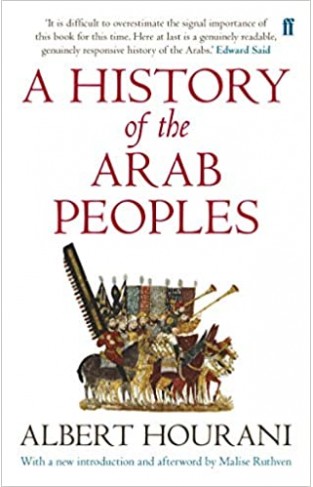
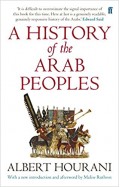
-120x187.jpg?q6)





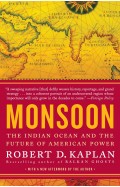
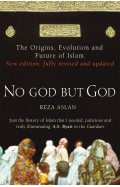
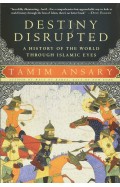
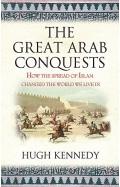


-120x187.jpg?q6)





